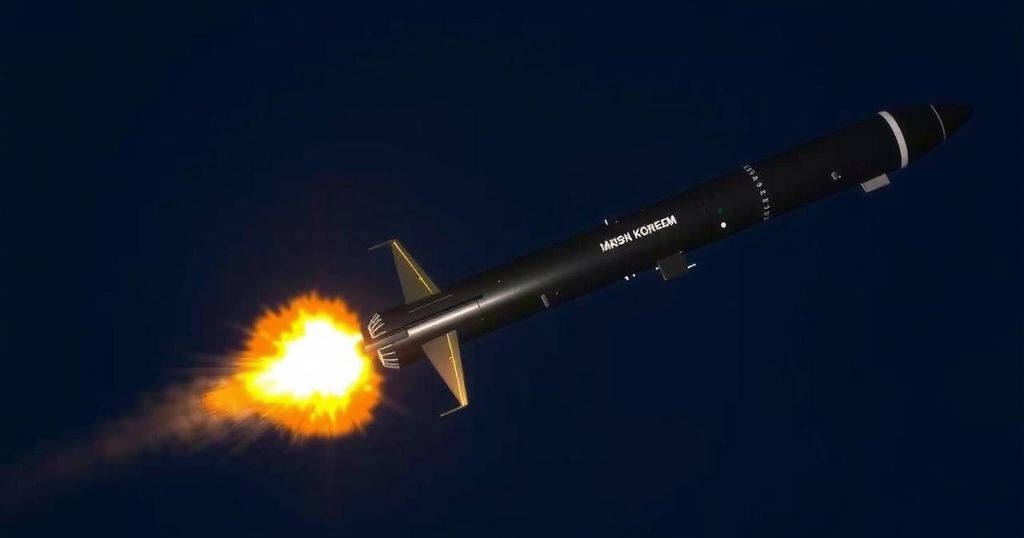North Korea’s Recent ICBM Test: Implications for Regional Security and International Relations

North Korea has launched a new ICBM, signaling its military capabilities and intentions ahead of U.S. elections. The test, which features advanced flight characteristics, has drawn condemnation from the U.S., South Korea, and Japan, raising regional tensions. Additionally, reports indicate North Korean troops could be involved in the Ukraine conflict, marking a significant geopolitical shift.
North Korea conducted a missile launch on Thursday, marking its first intercontinental ballistic missile (ICBM) test in nearly a year, specifically aimed at threatening the United States mainland. The event took place shortly before the U.S. elections, with North Korean leader Kim Jong Un labeling the action as a necessary military measure to affirm the nation’s resolve against perceived threats to its security from adversarial forces. The missile, identified as a new and potentially more agile model, witnessed extensive flight characteristics exceeding those of prior tests, which were corroborated by observations from South Korea and Japan. International responses included condemnations from the United States, South Korea, and Japan, with officials noting that the launch poses an escalated risk to regional stability. Furthermore, reports emerged regarding North Korean troops deployed in Russian uniforms towards Ukraine, indicating potential military cooperation with Russia amidst ongoing conflict in Eastern Europe. Analysis of the missile’s capabilities suggests that North Korea is progressing in its missile technology while potentially gearing up for further military engagements, including developments in its nuclear arsenal. This test reaffirms North Korea’s commitment to fortifying its nuclear capabilities and signals a strategic maneuvering aimed at enhancing its leverage in future negotiations on the international stage. Furthermore, the implications of North Korean troops possibly joining the conflict in Ukraine raise significant geopolitical concerns, indicating an increasing interconnectedness in global military engagements.
The recent North Korean missile launch underscores the ongoing tensions in Northeast Asia, particularly regarding North Korea’s nuclear ambitions and its relationship with the United States, South Korea, and Japan. This marks a significant development following a period of relative quiet concerning North Korean ICBM tests. The historical context of North Korea’s missile program reveals persistent advancements aimed at establishing credible threats to deter perceived external aggression. Moreover, the geopolitical landscape is complicated by North Korea’s escalating ties with Russia, particularly in light of the ongoing war in Ukraine, where North Korea’s military support to Russia could signify a new chapter in international military alliances and conflicts. The potential repercussions of these developments could affect not only regional security dynamics but also broader global stability, as nations recalibrate their defense strategies in response to these actions.
In conclusion, North Korea’s recent ICBM launch underscores its commitment to enhancing its military capabilities, particularly its nuclear weapons program, while also demonstrating its determination to respond to international pressures. The action coincides with a critical juncture in U.S. domestic politics and illustrates North Korea’s strategic intent to leverage its military advancements. Additionally, the potential involvement of North Korean troops in Ukraine could signify a troubling trend in international relations, highlighting the risks of deeper military entanglements. The implications of these developments will require sustained attention from global policymakers to mitigate risks associated with escalating tensions in the region and beyond.
Original Source: www.cbsnews.com








